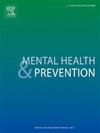Population-level mental health literacy: A vignette-based study on prejudice, sexism, and recognition in prevention strategies for social anxiety in Ghana
IF 2.4
Q2 Medicine
引用次数: 0
Abstract
Objective
Mental Health Literacy (MHL) evidence on promoting mental health prevention at the population level in Ghana is limited. We explored factors, including, sociodemographic variables, prejudice, sexist attitudes, and previous experience of mental disorders, related to the endorsement of prevention strategies for social anxiety in Ghana.
Methods
A total of 601 individuals participated in an online vignette-based experimental study. Participants were randomly assigned to read two clinical vignettes, each presenting symptoms of social anxiety for a hypothetical person, one being male and the other female. Participants provided their impressions of the hypothetical person and completed self-reported measures, encompassing assessments related to ambivalent sexism, MHL, prejudice, and demographic factors.
Results
We found that recognition of the social anxiety in the vignettes directly associated with psychotherapeutic prevention strategies and indirectly predicted substance-related prevention strategies for social anxiety among the participants. Prejudice towards social anxiety was linked to increased recommendation of substance-related prevention strategies for social anxiety and less frequent endorsement of psychotherapeutic prevention strategies. Benevolence towards women was positively associated with stress-reduction preventive strategies for social anxiety, while benevolence towards men negatively impacted such strategies.
Conclusion
Findings underscore the significant role of Western views of mental health, and the harmful impact of prejudice on mental health, including the potential impact of cultural and contextual elements in shaping preventive approaches to mental disorders. Efforts to enhance MHL aimed at improving population-level mental health outcomes should prioritize the development of compassionate and culturally inclusive responses to mental health distress while also working to reduce stigma.
人口水平的心理健康素养:基于加纳社会焦虑预防策略中的偏见、性别歧视和认知的小插曲研究
目的:加纳在人口层面促进心理健康预防方面的证据有限。我们探讨了与加纳社会焦虑预防策略的认可相关的因素,包括社会人口学变量、偏见、性别歧视态度和先前的精神障碍经历。方法共有601人参与了一项基于在线图片的实验研究。参与者被随机分配阅读两篇临床小短文,每一篇短文都为一个假想的人呈现社交焦虑的症状,一个是男性,一个是女性。参与者提供了他们对假设的人的印象,并完成了自我报告的测量,包括与矛盾性别歧视、MHL、偏见和人口因素相关的评估。结果研究发现,受试者对社交焦虑的认知与心理治疗预防策略直接相关,并间接预测受试者对社交焦虑的物质相关预防策略。对社交焦虑的偏见与对社交焦虑的物质相关预防策略的推荐增加以及对心理治疗预防策略的认可减少有关。对女性的仁慈与社交焦虑的减压预防策略正相关,而对男性的仁慈对社交焦虑的减压预防策略负相关。结论:研究结果强调了西方精神健康观的重要作用,以及偏见对精神健康的有害影响,包括文化和背景因素在形成精神障碍预防方法方面的潜在影响。旨在改善人口层面心理健康结果的加强妇幼保健的努力应优先考虑制定富有同情心和文化包容性的应对心理健康困扰的措施,同时努力减少耻辱感。
本文章由计算机程序翻译,如有差异,请以英文原文为准。
求助全文
约1分钟内获得全文
求助全文
来源期刊

Mental Health and Prevention
Medicine-Psychiatry and Mental Health
CiteScore
2.10
自引率
0.00%
发文量
22
审稿时长
24 days
 求助内容:
求助内容: 应助结果提醒方式:
应助结果提醒方式:


